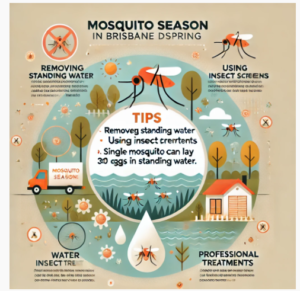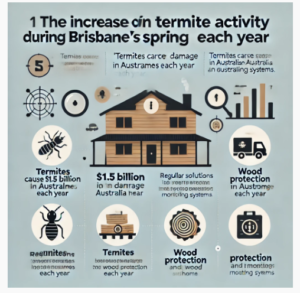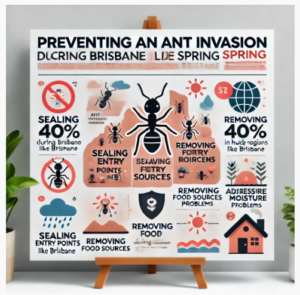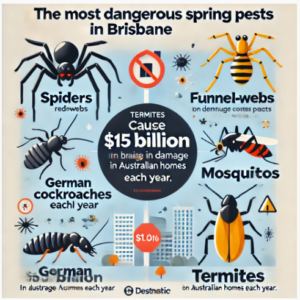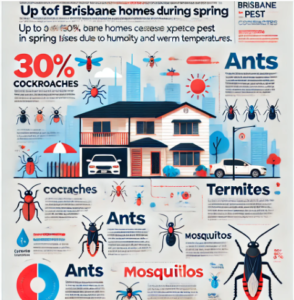Ants might be tiny insects, but they can become quite a nuisance when they invade our homes. These tiny creatures possess remarkable abilities to find their way into our living spaces and cause problems.
Fortunately, ant control professionals like Reliance Pest Control are equipped with effective strategies to eliminate these pests and prevent future infestations.
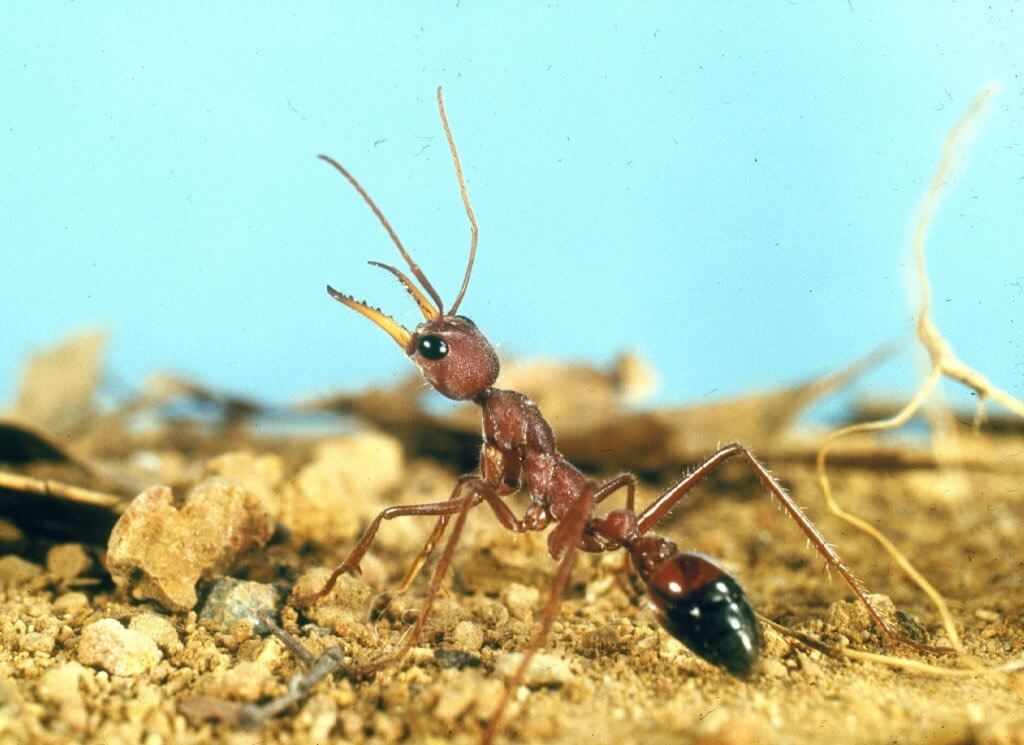
5 Reasons Why Ants Invade Your Place
Have you ever wondered how ants find their way into our homes and spaces? There are several reasons behind these tiny intruders making their way into your living space. Let’s delve into the main factors that drive ants to invade your home.
Seeking Food Source
One of the primary reasons ants invade your place is their constant search for food. Ants are opportunistic feeders, meaning they’ll go wherever they can find something to munch on, making professional ant control in Brisbane important.
Your home provides a plethora of potential food sources for these tiny scavengers. Even the tiniest crumbs that go unnoticed by humans can be a feast for ants. Sugary substances, crumbs, and even pet food left out in the open are like magnets for ants.
They follow scent trails left by their fellow ants, leading them straight to the food jackpot. So, suppose you’ve ever wondered why ants are swarming your kitchen or dining area. In that case, it’s likely they’ve detected the scent of a potential food source that necessitates effective ant control in Brisbane to prevent infestations.
Seeking Shelter
Ants are resourceful creatures, always on the lookout for suitable shelter. Your home in Brisbane provides an array of nooks and crannies that are perfect for ant colonies to set up shop. Cracks in walls, gaps in windows, and even the spaces beneath your floorboards can become cozy homes for these tiny invaders.
Ants are particularly fond of warm, dry places where they can establish their colonies without much interference. So, if you’re noticing ants crawling along the edges of your windows or disappearing into the crevices of your walls, it’s because they’ve found a potential shelter haven.
Nesting Sites
Creating a comfortable and secure nesting site is essential for the survival of ant colonies. Your place in Brisbane might inadvertently offer an attractive nesting environment for ants. Gardens with loose soil, unkempt lawns, and even potted plants can become enticing nesting spots. Ants create intricate tunnel systems beneath the surface, allowing them to move freely and establish a well-protected colony.
Additionally, if you have any wooden structures that have started to decay, ants might also see these as potential nesting sites. The soft, decaying wood provides an excellent material for them to build their nests. If you’ve noticed ants swarming around your garden or entering your wooden structures, it’s likely they’re exploring potential nesting sites.
Ant Behavior and Communication
Understanding the behaviour and communication of ants can shed further light on why they invade your living space. Ants communicate primarily through pheromones, chemical signals that they leave behind as they move.
When ants locate a food supply, they create a pheromone trail that leads other ants to the same location. This is why you often see a line of ants marching to and from a food source in your home. Their ability to communicate effectively about food locations plays a significant role in their invasion. If you’ve ever witnessed an ant trail in your kitchen, you’re observing this intricate communication in action.
Colony Expansion and Reproduction
Ant colonies are constantly growing and reproducing. As the colony population increases, some ants might venture out to find new areas for expansion. This could lead them to your home, especially if it provides the necessary resources for their survival.
The new colony members could be scouts exploring your place for its suitability as a new nesting site. If these scouts find ample food and shelter, they might signal the rest of the colony to move in, resulting in an invasion. Keeping an eye out for any evidence of increased ant activity will assist you in detecting an invasion in its early stages.
Types of Ants That Commonly Invade Homes
Not all ants are made equal when it comes to causing problems indoors. Different ant species have varying habits and potential for disruption. Here are a few types of ants that are commonly found invading homes in Australia:
Black House Ants (Ochetellus spp.)
These small, dark ants are often the most common intruders in Australian homes. While they don’t usually cause significant structural damage, they can be a nuisance as they search for sugary and protein-rich foods. Their tiny size allows them to access even the tiniest of cracks and crevices.
Carpenter Ants (Camponotus spp.)
These ants are known for their ability to damage wood structures. Unlike termites, carpenter ants don’t consume wood but excavate it to create nesting sites. They prefer moist or decayed wood and can weaken the integrity of wooden components in your home.
Coastal Brown Ants (Pheidole megacephala)
These ants are particularly prevalent along coastal areas of Australia. They are known for their aggressive behaviour and can displace other ant species in their quest for food. Coastal brown ants often invade homes in search of food scraps and can quickly establish large colonies.
Pharaoh Ants (Monomorium pharaonis)
These small, light-coloured ants are notorious for their ability to spread disease-causing organisms. They can contaminate sterile environments such as hospitals and restaurants. Pharaoh ants are challenging to control due to their habit of splitting their colonies when threatened.
Can Ants Cause Problems in a House?
Ants might seem harmless, but they can cause various problems when deciding to make your house their home.
These little critters are more than just picnic thieves; they can create quite a nuisance and even pose some risks. Let’s dive into the details of how ants can cause problems in your house.
Contamination of Food and Surfaces
One of the primary issues with ants inside the house is their tendency to contaminate food and surfaces. These industrious insects are always on the lookout for food, and when they find a source, they leave behind a trail of pheromones to guide their fellow ants.
This can result in ants marching across your kitchen countertops and pantry shelves, seeking out anything edible. As they explore, they can transfer bacteria and germs from unsanitary places to your food and preparation areas, increasing the risk of foodborne illnesses.
Property Damage and Nesting
Ants aren’t just interested in food; some species can also cause structural problems. Carpenter ants, for instance, like to build their nests in damp or decaying wood.
They tunnel through the wood to create galleries and can weaken the structure of your house over time. If left unchecked, this could result in costly repairs. Other ants may nest in wall voids, insulation, or even electrical outlets, potentially causing damage or even fire hazards.
Electrical Problems
Speaking of electrical outlets, ants can sometimes find their way into them. This can be a serious issue, as ants are naturally attracted to warmth and electricity.
Building their nests inside outlets or chewing on wires could disrupt your electrical system, leading to outages or even fires. It’s essential to address ant infestations promptly to avoid these potential dangers. Considering ant control in Brisbane by Reliance Pest Control could be a valuable option if you’re facing such issues in the Brisbane area.
Garden Troubles Brought Indoors
Sometimes, ants can inadvertently introduce problems from the outside into your home. For instance, they might carry tiny garden pests like aphids with them.
These pests can damage indoor plants, and their sticky residue, known as honeydew, can attract more ants and even mould. This can become a cycle of problems affecting your indoor and outdoor spaces.
Allergies and Stings
Like fire ants, certain ant species can deliver painful stings that can induce allergic reactions in some people. While fire ants are more common in warmer climates, their presence can still be a concern.
For those with allergies, these stings can lead to severe itching, swelling, and, in some cases, even anaphylaxis, a life-threatening reaction. It’s important to be cautious and take measures to prevent ant stings, especially if you suspect an infestation of stinging ants.
Preventing and Managing Ant Problems
The good news is that there are steps you can take to prevent and manage ant infestations in your home. Regularly cleaning up food crumbs, sealing food containers, and keeping your house dry can make your home less appealing to ants. If you notice any ant trails or nests, it’s best to address the issue promptly.
There are various DIY methods and commercial products available for ant control. However, if the infestation is extensive or persistent, seeking professional help, such as Ant Pest Control in Brisbane provided by Reliance Pest Control, can be a highly effective solution.
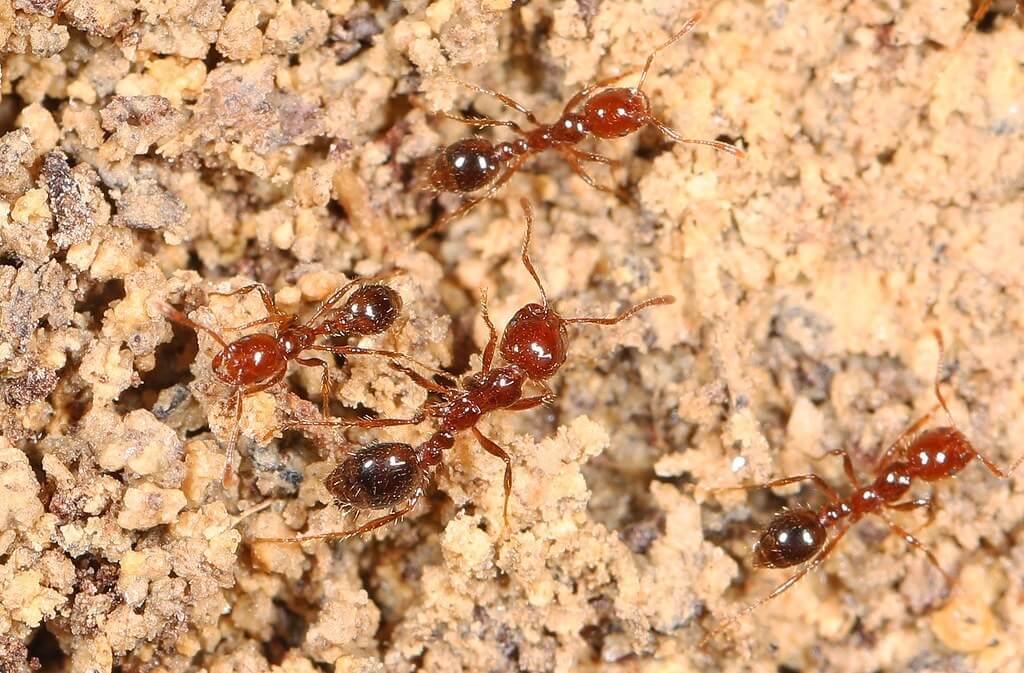
How Do I Stop Ants From Invading?
To keep unwelcome ants at bay, there are some steps you can take. While some products available in the market might provide short-term relief, a more effective approach is often necessary for long-term ant control.
The Limitations of Store-Bought Products
Many store-bought ant control products claim to offer a quick solution to ant invasions. However, these solutions often fall short in the long run. Ants can quickly adapt to these products, rendering them ineffective after a short period of time.
To truly put an end to ant invasions, it’s advisable to seek professional help from experts like Reliance Pest Control.
The Reliance Pest Control Advantage
When faced with a persistent ant invasion, reaching out to professionals like Reliance Pest Control can make all the difference. These experts have the knowledge and experience to tackle any problems comprehensively, ensuring a lasting solution that store-bought products can’t provide.
What Do Ant Control Professionals Do to Get Rid of Ants?
Ant control professionals initiate the process by thoroughly inspecting your premises. This step is crucial for identifying the ant species causing the infestation and locating their nests.
Understanding the specific habits and behaviours of the ants allows professionals to tailor their approach effectively.
Customized Treatment Plan
Ant control professionals create a customized treatment plan based on the inspection findings. This plan takes into account the ant species, the extent of the infestation, and the layout of your property. A one-size-fits-all approach doesn’t work in ant control, and this personalized strategy ensures better results.
Treatment Methods for Effective Ant Eradication
Ant control professionals employ a range of treatment methods to get rid of ants. These methods are targeted and designed to disrupt the ants’ life cycle and colony structure.
Baiting
Baiting is a common method used by professionals. Specialized ant baits are strategically placed to attract ants. These baits are formulated with slow-acting insecticides, allowing ants to carry the poison back to their nests. This approach ensures the entire colony is affected, leading to long-term eradication.
Insecticide Application
In cases where the infestation is severe, professionals may use insecticides. These treatments are applied directly to ant entry points, trails, and nests. Careful application ensures that the insecticides reach the heart of the colony, effectively eliminating the ants.
Preventive Measures for Future Ant Control
Ant control professionals don’t stop at eradication; they also focus on preventing future invasions. They provide recommendations to make your property less attractive to ants.
Sealing Entry Points
Professionals advise on sealing cracks, gaps, and other entry points that ants can use to access your home. Preventing their entry in the first place is a key step in ant control.
Removing Attractants
Ants are attracted to food and water. Professionals guide you in keeping your space clean and free of crumbs, spills, and standing water. Proper food storage and waste management are emphasized.
Ongoing Monitoring and Maintenance
Ant control professionals don’t consider their job done after the treatment. They often set up monitoring stations to track ant activity over time. This proactive approach helps catch any signs of resurgence early on and ensures long-term success.
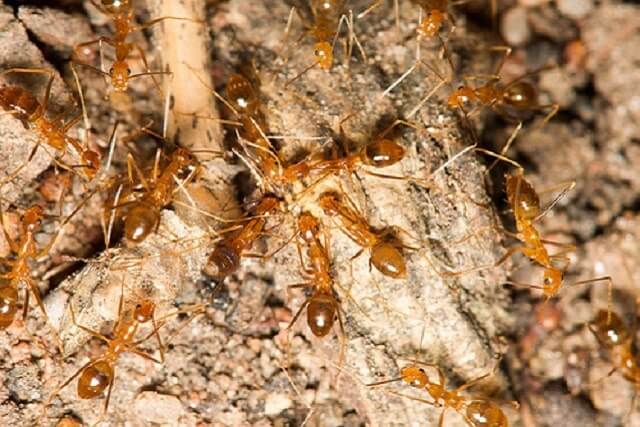
To sum it all up
Dealing with ant infestations requires a comprehensive and strategic approach. Ant control professionals are vital in eradicating ants from your living spaces and preventing future invasions.
Through thorough inspections, they identify the specific ant species and their nesting locations, allowing them to tailor a customized treatment plan. Professionals use methods like baiting and targeted insecticide application to disrupt the ants’ life cycle and colony structure, leading to effective eradication.
However, their efforts don’t stop there; these experts also focus on preventive measures, such as sealing entry points and removing attractants, to make your property less appealing to ants. With ongoing monitoring and maintenance, ant control professionals ensure long-term success in keeping your home ant-free.
When facing persistent ant invasions, seeking help from professionals like Reliance Pest Control offers a distinct advantage over store-bought solutions. Contact them now! to secure a lasting solution to the problem.

